Rare Antique Iron Shachi-hoko Design Tsuba Edo period Sword katana from Japan —
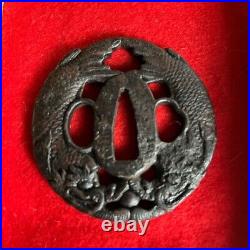
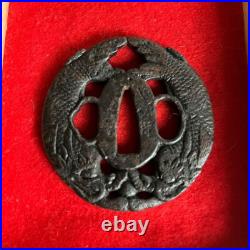
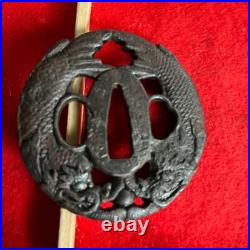
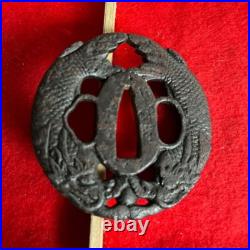
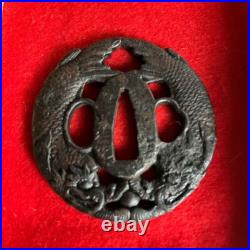
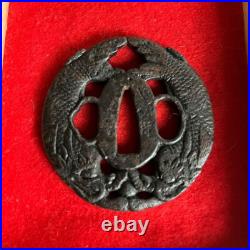
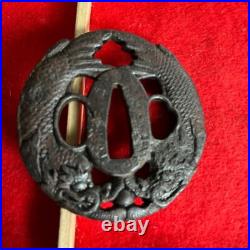
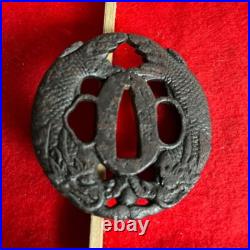
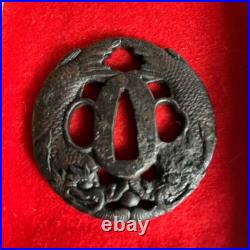
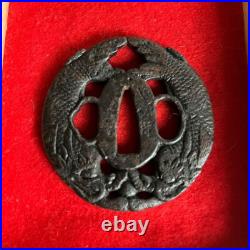
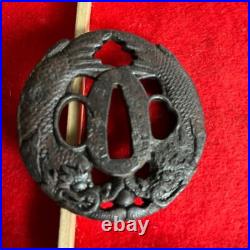
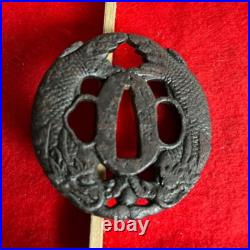

Thank you for visiting our page. Antique Rare Shachi-hoko Design Iron Tsuba Edo period Sword katana from Japan. Shows signs of age including dirt, scratches and Rust. Antique Japanese Iron Tsuba with Shachi-hoko Design – Signed Samurai Sword Guard. Rare Edo Period Openwork Sword Fitting with Mythical Creature Motif. This listing features a fine antique Japanese iron tsuba (sword guard) showcasing an intricate Shachi-hoko design. The piece demonstrates exceptional sukashi (openwork) carving technique depicting the mythical dolphin-like creature traditionally placed on Japanese castle rooftops as talismans against fire. Design: Shachi-hoko – a mythical creature with the head of a tiger and body of a fish. Technique: Sukashi (openwork/pierced carving) on hand-forged iron. Signature: Bears an artist signature, though partially obscured/difficult to decipher. Cultural Significance: The Shachi-hoko is an important symbol in Japanese architecture and mythology, most famously seen atop Nagoya Castle. Period: Edo Period – authentic antique samurai sword fitting. Width: 6.8 cm. As expected of a genuine antique piece, this tsuba shows some age-appropriate wear with minor scratches and patina that authenticate its historical nature. The overall condition is good with the intricate openwork design remaining well-preserved. This exceptional tsuba would make an excellent addition to any collection of Japanese sword fittings, samurai artifacts, or Asian antiques. The Shachi-hoko motif is particularly desirable for its cultural significance and the technical skill required to execute such detailed openwork. Expert collectors may be able to fully identify the artisan’s signature, potentially adding further historical and collectible value to this piece. As this is an antique item, please be aware that there may be wear, minor scratches, stains, and patina due to age. Please carefully examine the photos to confirm the item’s condition before purchasing. This listing is intended for those who understand the nature of pre-owned items. If you are particularly sensitive to minor details, we kindly ask you to refrain from purchasing. Please note that we may not be able to answer questions whose answers vary depending on a personal perspective to prevent misunderstandings or disputes. If you have any specific concerns about the item, please don’t hesitate to ask before purchasing. Environmental Commitment : We use recycled packaging materials to reduce environmental impact. Australia : Available (rates calculated at checkout). Maximum: Up to 14 days (location/season dependent). International Buyers: Important Notes. We comply with all international regulations regarding declared values and gift designation. Haven’t received your item after 14 days? We appreciate your support in our efforts to provide excellent service while protecting our planet!

Categorised as: rare
Comments are disabled on this post